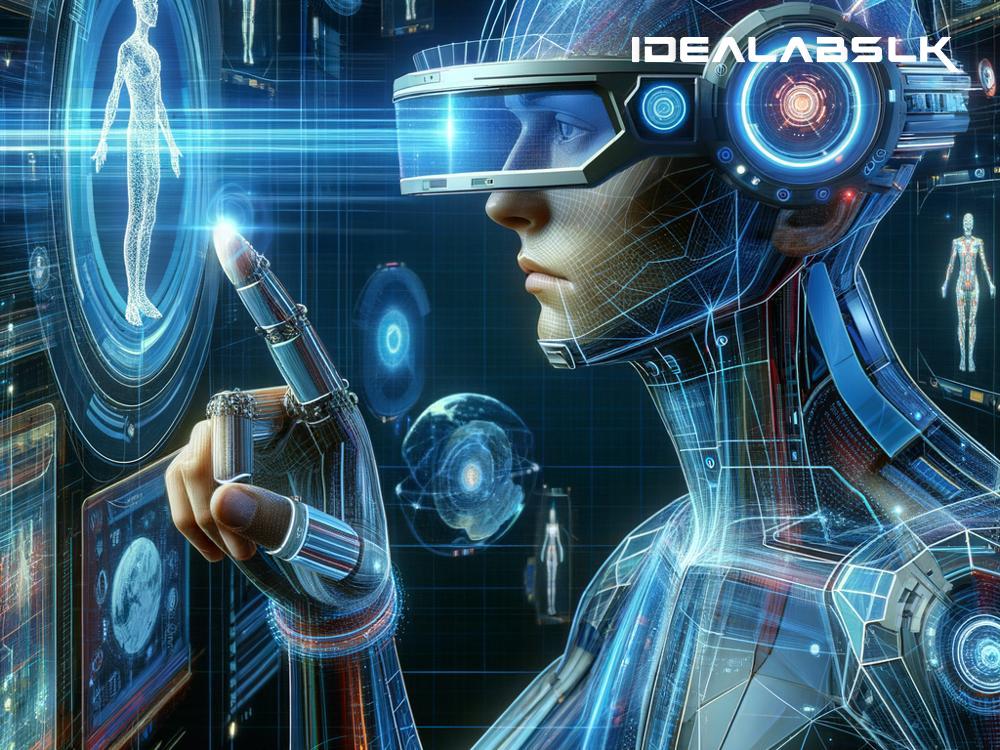How AI Will Change Wearable Devices in 2025
Just a few years ago, wearable devices were simple gadgets that counted steps and monitored sleep. But as we look towards 2025, the future seems incredibly bright, especially with the advancements in artificial intelligence (AI). AI is like a smart assistant that learns and adapts over time, transforming how we interact with our gadgets. It's set to revolutionize wearable devices, making them not just smarter, but also more helpful in our daily lives.
So, let's dive into some of the exciting changes we can expect in wearable devices by 2025, thanks to AI.
Personal Health Coaches on Your Wrist
Imagine wearing a device that doesn't just track your steps or sleep but also gives you personalized health advice. By 2025, wearable devices will be like having a personal health coach or doctor on your wrist. AI will analyze your health data in real-time, offering recommendations tailored just for you. It could suggest the best time of day to exercise, remind you to stay hydrated, or even predict potential health issues before they become serious, encouraging early diagnosis and treatment.
Seamless Integration with Daily Life
Currently, interacting with wearable devices can be clunky – you might need to scroll through tiny screens or depend heavily on your smartphone. By 2025, AI will make these gadgets more intuitive, understanding your voice commands more accurately and even predicting your needs before you articulate them. Your smartwatch could remind you to grab an umbrella if it knows you'll be heading out and rain is expected. This level of seamless integration will make wearable devices an effortless extension of our lives.
Improved Mental Health Support
Mental health is just as crucial as physical health, and fortunately, wearable devices in 2025 will offer much more support in this area. Through AI, wearables will monitor stress levels and offer real-time suggestions to help manage it. Whether it's guiding you through a breathing exercise or suggesting a break if you're feeling overwhelmed, these devices will play an active role in supporting mental well-being.
Enhanced Connectivity and Communication
By 2025, wearable devices will be central communication hubs. AI will enable these devices to filter and prioritize notifications and communication so that you're not constantly bombarded with alerts. Only the most relevant information will make it through, based on your current activity or the time of day. This will help reduce distractions and make it easier to stay focused on what truly matters.
More Inclusive and Accessible Technology
One of the most exciting prospects of AI in wearable devices is the push towards more inclusive and accessible technology. By understanding and adapting to the unique needs of each user, wearable devices will become more useful for people with disabilities or those who require additional assistance. Voice commands, gesture control, and even direct brain-computer interfaces could help make wearable technology accessible to everyone, regardless of their physical abilities.
Privacy and Security Enhancements
As wearable devices become more integrated into our lives, the amount of personal data they handle will increase. Fortunately, AI will also play a crucial role in enhancing privacy and security measures. Through advanced encryption and smarter, context-aware security protocols, users can trust that their data is safe. Moreover, AI could help identify and block potential threats before they compromise your device.
Boosting Physical Performance
For the athletes and fitness enthusiasts out there, the future looks promising. AI-powered wearable devices will offer detailed analytics on your performance, adapting training programs in real-time to help you achieve your goals. Whether it's improving your running technique or adjusting your workout plan based on your recovery, these devices will take sports and fitness to a whole new level.
The Possibilities are Endless
As we look forward to 2025, it's clear that AI will transform wearable devices from simple gadgets into essential tools for health, productivity, and communication. These advancements will make our interactions with technology more natural and intuitive, improving our quality of life in countless ways.
Of course, the success of these innovations will depend on thoughtful implementation and an ongoing commitment to user privacy and data security. But if done right, the integration of AI into wearable devices holds the promise of a healthier, more connected, and more inclusive future for everyone.
As we continue to navigate the challenges and opportunities of this digital age, it's exciting to think about the positive changes AI and wearable technology will bring to our lives in just a few short years. The future is indeed wearable.

